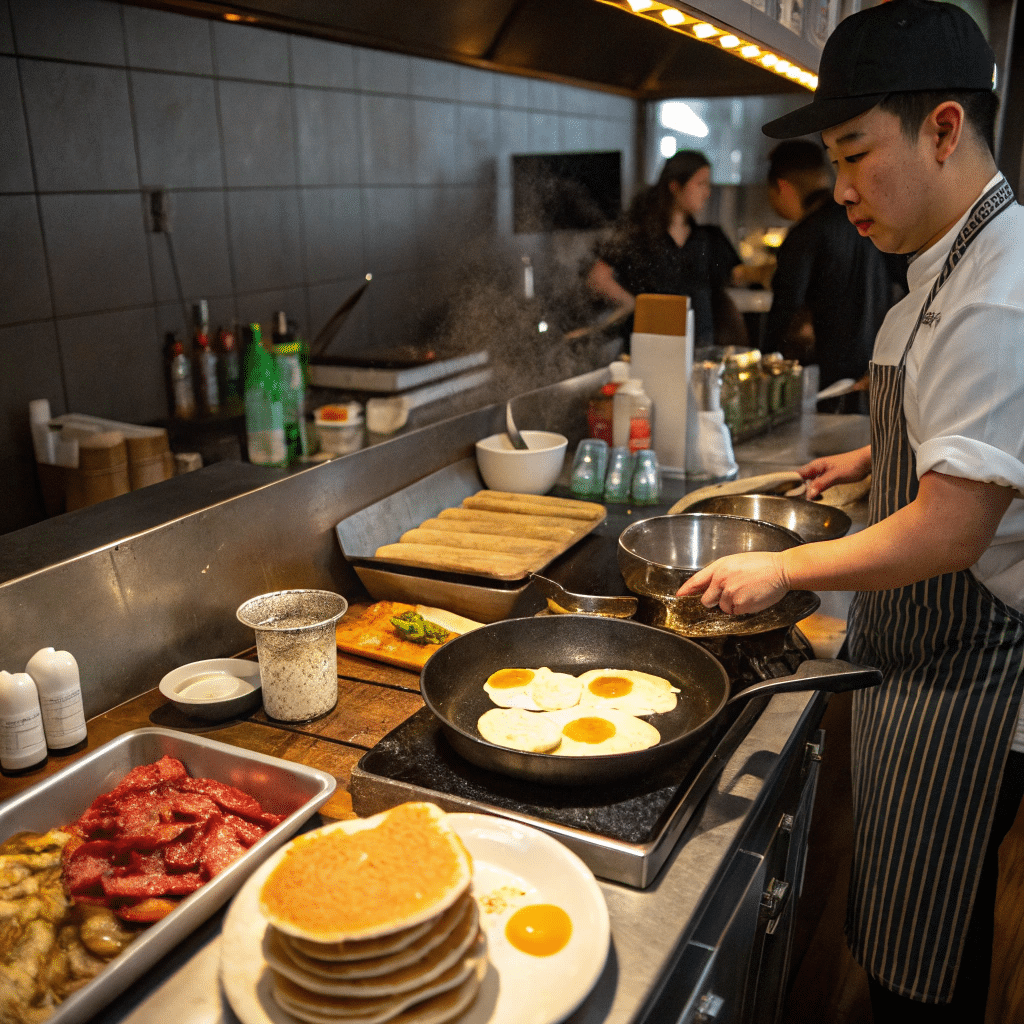Introduction
For people with celiac disease, it’s crucial to maintain a strict gluten-free diet, as consuming gluten causes an immune response that damages the small intestine. Eggs, while naturally gluten-free, can sometimes pose a risk to those with celiac disease due to cross-contamination and hidden gluten in processed egg products. This article will explore why eggs might be problematic for celiacs and how to incorporate them into a gluten-free diet safely.
Are Eggs Naturally Gluten-Free?
Eggs, whether from chickens or other birds, are naturally gluten-free. However, complications arise when eggs are prepared or processed alongside gluten-containing foods. Cross-contact in restaurants or kitchens can pose a significant risk. You can also learn more about gluten-free meal options by reading what common meals are gluten-free, which offers great insights into safe options for people with celiac disease.
Cross-Contamination in Restaurants and at Home
Cross-contamination is one of the main concerns when celiacs eat eggs. In restaurants, eggs might be cooked on the same griddle as pancakes, toast, or other gluten-containing foods. Even at home, using shared cookware, utensils, or cutting boards could introduce gluten. If you’re preparing meals for a celiac at home, check out these easy gluten-free dinner recipes for the family for safe and simple options that avoid cross-contamination.
Processed Egg Products and Hidden Gluten
Another issue arises with processed egg products, such as liquid egg whites or powdered eggs. These often contain preservatives or additives that may include gluten. It’s important to read labels carefully to ensure no gluten-containing ingredients are present. Furthermore, some egg products are processed in facilities that handle gluten, increasing the risk of cross-contact. Always look for gluten-free certifications on processed egg products to avoid any hidden gluten.
Safe Egg Dishes for Celiacs
Egg-based dishes such as quiches, omelets, and breakfast casseroles may contain gluten from thickeners or breadcrumbs. When dining out or preparing these dishes at home, it’s essential to ask about the ingredients used. To find more ideas on how to prepare safe gluten-free meals, check out these suggestions for what you can make for someone gluten-free.
Preparing Eggs Safely at Home
When preparing eggs for someone with celiac disease, follow these guidelines to prevent cross-contamination:
- Use separate utensils, cookware, and cutting boards for gluten-free foods.
- Clean surfaces thoroughly before preparing food.
- Avoid using shared kitchen appliances like toasters or frying pans that may have come into contact with gluten.
By following these precautions, eggs can safely be part of a gluten-free diet without worry.
FAQs
Can Celiacs Eat Eggs?
Yes, eggs are naturally gluten-free, but celiacs need to be cautious of cross-contamination and gluten-containing additives in egg products or egg-based dishes.
Why Do Some Celiacs React to Eggs?
The reaction is often due to cross-contamination or hidden gluten in prepared egg dishes, rather than the eggs themselves.
How Can I Avoid Cross-Contact with Eggs?
- Cook eggs in a clean, separate pan.
- Use gluten-free ingredients and seasonings.
- Always clean kitchen surfaces thoroughly before cooking.
Conclusion
Although eggs are naturally gluten-free, celiacs must be cautious about how they are prepared and processed. The primary concerns are cross-contamination and hidden gluten in processed products. By following strict food handling guidelines, choosing certified gluten-free products, and reading labels carefully, celiacs can safely enjoy eggs. For more tips and safe meal ideas, you can explore what a good dinner is for someone with celiac disease.

